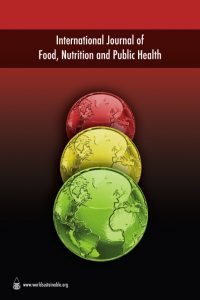The Roles of Social Media, Clean Eating and Self-Esteem in the risk of Disordered Eating: A Pilot Study of Self-reported Healthy Eaters, Emily Fivian and Carly J. Wood
 Emily Fivian and Carly J. Wood*
Emily Fivian and Carly J. Wood*
University of Westminster, UK
Background: Clean eating is a dietary trend focused on the avoidance of unhealthy foods. Social media encourages these highly restrictive diets and this can lead to eating disorders and low self-esteem. This study examines the influence of dietary classification, social media use, diet quality and self-esteem on eating disorder risk amongst a group of self-reported healthy eaters.
Methods: A total of 41 participants completed an online survey examining diet quality via the healthy eating index, and eating disorder risk using the eating disorder examination questionnaire (EDE-Q). Participants were also asked to complete Rosenberg’s self-esteem scale and reveal whether they defined their diet as either ‘clean’ or ‘pure’; this is reflective of the trend of clean eating. Participants also categorised the time spent on social media each day.
Results: Independent t-tests revealed that participants who categorised their diet as ‘clean’ had significantly higher self-esteem (SE) (t(39) = 2.729; p = .009); while greater time on social media was associated with elevated eating disorder risk (t(39) = -2.99; p = .005) and poorer SE (t(39) = -3.01; p = .005). Multiple linear regression revealed that social media usage was a significant predictor of eating concern (ß = .419; p = .01), while SE significantly predicted eating restraint (ß = -.423; p = .03), shape concern (ß = .217; p = .04), weight concern (ß = -.454; p = .008), and the global EDE-Q score (ß = -.437; p < .01).
Conclusions: Both social media usage and self-esteem might play a key role in the development of eating disorders in a group of self-reported healthy eaters, with high social media usage also influencing self-esteem. Future research should examine how social media could be used to promote good self-esteem and thus reduce eating disorder risk.
Keywords: Eating disorder; social media; self-esteem; clean eating; dietary trends; eating concern
Reference to this paper should be made as follows: E. Fivian and C. J. Wood (2018) ‘The Roles of Social Media, Clean Eating and Self-Esteem in the risk of Disordered Eating: A Pilot Study of Self-reported Healthy Eaters’, Int. J. Food, Nutrition and Public Health, Vol. 10, No. 1, pp. 28–39.

